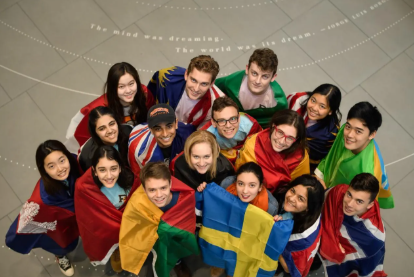Choosing where to study in the US when you’re coming from anywhere outside America really involves different considerations than what domestic students think about. Sure, academic quality matters, but so does financial aid availability, visa support, how welcoming the campus is to international students, and whether there’s a community where you won’t feel completely isolated.
I’ve looked into what makes certain US colleges particularly good for international students, and I want to share what I’ve learned. These aren’t just the famous names everyone knows. Some of them are, but others might surprise you. What matters is finding a place where you can actually thrive, not just survive.
What Actually Matters for International Students
Before we get into specific schools, let’s talk about what you should be looking for. Rankings are fine, but they don’t always capture what matters most when you’re thousands of miles from home.
Financial Aid: This is huge. Most US colleges don’t offer financial aid to international students, or they offer very limited amounts. The schools that do offer substantial aid to internationals are gold. Without aid, you’re looking at $60,000 to $80,000 per year including living expenses. That’s not realistic for most families.
Visa Support: You need a school with an experienced international student office that knows how to handle visa issues, OPT applications, and all the bureaucratic headaches that come with studying in the US. Some schools are better at this than others.
Community: Being the only Nigerian student in a school of 2,000 can be lonely. Look for places with active international student communities, cultural organizations, and a critical mass of students from different countries. You want to feel like you belong, not like you’re constantly explaining where you’re from.
Career Support: OPT (Optional Practical Training) allows you to work in the US after graduation, but you need a school that helps international students navigate the job market. Some career centers are great at this; others basically ignore international students.
Location: This matters more than you might think. Some American cities and towns are more welcoming to foreigners than others. College towns are often better than big cities for feeling integrated into campus life.
Massachusetts Institute of Technology (MIT)
MIT tops a lot of lists for international students, and there are solid reasons why. Located in Cambridge, Massachusetts, right next to Boston, MIT combines world-class academics with a genuine commitment to international students.
Here’s what makes MIT special for internationals: they’re need-blind for admissions. That means they don’t consider your ability to pay when deciding whether to admit you. If you get in, they meet your full demonstrated financial need. For a Nigerian student, this is massive. You’re not competing for limited aid slots; you’re evaluated purely on merit.
The school is obviously strong in engineering, computer science, physics, and math. But they’ve also got excellent programs in economics, business, and even some humanities. The intensity is real though. MIT students work hard, and the problem sets are legendary. If you love STEM and want to be pushed, MIT is perfect. If you’re unsure about your major or want a relaxed college experience, look elsewhere.
The international student community at MIT is substantial, making up about 10% of undergrads. You’ll find other Nigerian students there, along with people from all over the world. The campus culture values intelligence and innovation over traditional American college social life. Not much Greek life, not huge on sports. More about building things and solving problems.
Boston weather is cold. Like, properly cold. If you’ve never experienced winter, those first few months can be brutal. But the city itself is great for students, with lots of universities nearby and plenty to do.
Getting in is incredibly competitive. MIT admits around 3-4% of applicants. You need exceptional grades, strong test scores (if you’re submitting them), and something that makes you stand out. Just being smart isn’t enough; they want to see what you’ve created or accomplished.
Harvard University
Harvard’s reputation is global. People in Lagos know Harvard. That name recognition matters when you’re looking for jobs or further education opportunities after graduation. But beyond the prestige, Harvard actually offers strong support for international students.
Like MIT, Harvard is need-blind for all applicants, including international. They meet full demonstrated need. This puts Harvard in a very small group of schools willing to make such commitments to international students. For many Nigerian families, this is what makes Harvard accessible at all.
The academics span everything. Whatever you want to study, Harvard probably has one of the best programs in it. The humanities are just as strong as the sciences. The resources are absurd: libraries, research opportunities, and study abroad options. You’re not lacking for anything.
The student body is diverse, with internationals making up about 12% of undergrads. The international students’ office is well-established and knows what it’s doing. They help with visa issues, cultural adjustment, and connecting you with other international students.
Cambridge is a proper college town despite being right next to Boston. The area around Harvard is walkable, with restaurants, bookstores, and coffee shops catering to students. You don’t need a car, which is good because parking is terrible and cars are expensive.
One thing about Harvard: it can feel intense and competitive. Students are accomplished and driven, which is inspiring but sometimes overwhelming. Imposter syndrome is real, especially when you’re surrounded by people who’ve already started companies or published research. But there are support systems in place if you seek them out.
Admission is brutally competitive, even more so than at MIT. Single-digit acceptance rates. You need to be exceptional across the board.
Yale University
Yale, in New Haven, Connecticut, offers something a bit different through its residential college system. When you arrive, you’re assigned to one of fourteen residential colleges, each with its own dining hall, common spaces, and community. This creates smaller communities within the larger university, which can be really helpful for international students trying to find their place.
Yale is also need-blind for international students and meets full need. This puts it in that elite group of schools that are actually accessible to Nigerian students, regardless of family finances. The financial aid office works with international students to understand their financial situations, recognizing that income documentation works differently in different countries.
Academically, Yale is strongest in the humanities and social sciences, though the sciences are excellent too. Political science, economics, history, English, and international relations all have outstanding reputations. If you’re interested in law, politics, or diplomacy down the road, Yale has strong networks in those fields.
The campus is beautiful, with Gothic architecture that looks like something from Harry Potter. New Haven itself is smaller than Boston or New York, which some students love and others find limiting. The pizza is supposedly the best in America, which matters more than you might think when you’re missing home food.
Yale’s international student population is significant, and there are active cultural groups, including an African Students Association. You won’t be alone in navigating life as an international student. The support networks exist if you plug into them.
Princeton University
Princeton, in New Jersey between New York and Philadelphia, is smaller than Harvard or Yale but offers an incredibly rich undergraduate experience. With only about 5,000 undergrads total, you get more attention and closer relationships with faculty than at larger schools.
Princeton is need-blind for international students and meets full need. They’ve also eliminated loans from financial aid packages, replacing them with grants. This means you graduate without debt, which is huge when you’re thinking about career flexibility afterward.
The academics are rigorous across the board. Princeton is particularly known for math, physics, economics, and public policy. The undergraduate focus is stronger here than at schools with large graduate programs. Professors actually teach undergraduates, which isn’t always true elsewhere.
The eating clubs at Princeton are unique and somewhat controversial. They’re sort of like fraternities but centered around dining. Some are selective, some aren’t. They dominate social life for upperclassmen, which can be great or limiting depending on your perspective. As an international student, you might find this aspect of Princeton culture confusing at first.
The town of Princeton is wealthy and quiet. You’re not in a major city, which means campus life is more insular. Some students love the focus this creates; others feel isolated. There’s a free shuttle to New York and Philadelphia, but you’re definitely in a college town bubble.
International students make up about 12% of the student body. The support systems are strong, though the smaller size means fewer international students overall compared to Harvard or Columbia.
Amherst College
Now we shift to a completely different type of school. Amherst is a small liberal arts college in Massachusetts with only about 1,800 students total. Why include it when we’ve been talking about research universities?
Because Amherst is need-blind for international students and meets full need. Very few liberal arts colleges make this commitment, making Amherst unusually accessible for Nigerian students. The small size means a completely different experience: small classes, close relationships with professors, focus on teaching rather than research.
Liberal arts education emphasizes breadth. You’ll take classes across disciplines, learning to think critically and write well regardless of your major. This approach produces graduates who are adaptable and intellectually flexible. Whether that appeals to you depends on what you want from college.
The setting is a classic New England college town. Amherst is part of a five-college consortium including Smith, Mount Holyoke, Hampshire, and UMass Amherst. You can take classes at any of them, expanding your options beyond what a school of 1,800 could offer alone.
The lack of graduate students means undergrads get all the attention. Research opportunities exist, but they’re not the same as at MIT or Harvard. If you want to work in cutting-edge labs with graduate students and postdocs, a research university might suit you better. If you want professors who focus entirely on teaching undergrads, Amherst delivers.
Social life is campus-centered since there’s not much happening in the town itself. You need to be comfortable with a small community where you’ll see the same people constantly. Some students love this intimacy; others feel constrained.
Columbia University
Columbia’s location in New York City shapes everything about it. You’re in Manhattan, with all the opportunities and challenges that come with it. Internships, cultural events, diversity, excitement. Also, expense, noise, and urban chaos.
Columbia meets full demonstrated need for all admitted students, including internationals, though they’re not need-blind in admissions for internationals. This means your ability to pay does factor into admission decisions. If you need substantial aid, your chances of admission are lower than if you can pay full price. That’s the reality, even though it’s not ideal.
Academically, Columbia is excellent across disciplines. The Core Curriculum requires all students to take certain courses in literature, philosophy, history, and science. You’ll read Plato, Homer, and Augustine regardless of whether you’re an engineering or English major. Some students find this enriching; others resent the requirements.
The student body is incredibly diverse, including many international students. You’ll find Nigerian students and active African student organizations. The international students office is experienced and helpful, dealing with the complexities of visas and work authorization regularly.
Living in New York is expensive beyond tuition. Even with housing covered, you’ll spend money on food, transportation, entertainment. The city is seductive and constantly pulling at your wallet. But the opportunities are real. You can intern during the school year, attend world-class cultural events, meet people from every imaginable background.
The campus itself is compact, almost claustrophobic compared to sprawling universities elsewhere. But you’ve got all of New York as your campus. Whether that trade-off appeals to you is personal.
University of Pennsylvania
Penn, in Philadelphia, has a more pre-professional culture than some peer schools. Students are ambitious about careers, internships, and networking from day one. If you want that environment, Penn provides it. If you prefer a more intellectual, less career-focused atmosphere, other schools might suit you better.
Penn meets full demonstrated need for all students but isn’t need-blind for internationals. Like Columbia, your financial need affects admission chances. The school does commit substantial resources to international student aid, but competition for those dollars is intense.
The business school, Wharton, is world-famous and attracts many international students. Engineering is strong, as are economics, political science, and the biological sciences. Penn encourages interdisciplinary study, making it easier to combine interests across schools.
Philadelphia is more affordable than New York or Boston while still offering urban opportunities. The campus itself is cohesive and attractive, with clear boundaries separating it from surrounding neighborhoods. Campus safety is taken seriously, with strong security presence.
The international student population is substantial, around 13% of undergrads. You’ll find active cultural organizations and good support systems. Penn’s global network is strong, which matters for career opportunities after graduation.
The social scene includes significant Greek life, which isn’t something most Nigerian students have experience with. You can navigate Penn social life without joining a fraternity or sorority, but it’s a visible presence on campus.
Duke University
Duke, in Durham, North Carolina, offers excellent academics in a different regional context than the Northeastern schools we’ve been discussing. The South has a different culture, and Duke reflects that to some degree while maintaining its global orientation.
Duke meets full need for all admitted students, including international, but isn’t need-blind for international admissions. Financial need affects your chances of getting in. However, Duke does commit to meeting needs for admitted international students, which is more than most schools offer.
Academically, Duke is strong across the board with particular strengths in public policy, biomedical engineering, and economics. The medical center and research facilities rival anywhere. Basketball is huge at Duke, dominating campus culture in ways that surprise international students who aren’t used to sports mattering so much.
Durham is growing and revitalizing, but remains smaller and more affordable than major cities. You’ll need a car to really explore the area, though the campus itself is walkable. The weather is mild compared to Boston or New Haven, which matters if you hate cold.
The international student community is solid, around 10% of undergrads. Duke works to make international students feel welcome, with orientation programs and ongoing support. The Robertson Scholars Program (a joint program with UNC-Chapel Hill) includes some international students and provides extra resources and opportunities.
Greek life and school spirit are bigger at Duke than at many peer schools. If you want that traditional American college experience, Duke delivers. If that’s not your scene, you can find other communities, but it requires more effort.
Williams College
Williams College in Massachusetts represents the pinnacle of liberal arts education. With only about 2,000 students, it offers an intimate community and exceptional teaching. Like Amherst, Williams is need-blind for international students and meets full need.
The location is rural. Williamstown is in the Berkshire Mountains, beautiful but isolated. You’re not near any major city. This creates a tight-knit community but can feel confining. You need to enjoy nature and be comfortable with a small-town atmosphere.
Academically, Williams excels in everything it offers, with particularly strong programs in economics, political science, and art history. The tutorial system, modeled on Oxford, offers some classes with just two students and a professor. This level of attention is unmatched at larger schools.
The international student population is smaller in absolute numbers than at large universities, but significant as a percentage. Williams works hard to integrate international students and provides substantial support. The student body is generally welcoming and curious about different perspectives.
Winter is long and cold. The mountains are gorgeous, and outdoor activities abound if you’re into skiing, hiking, or just being outside. But if you hate cold weather, six months of winter might be brutal.
Career support is strong despite the small size. Williams alumni are fiercely loyal and help recent grads with job opportunities. The school’s reputation opens doors in graduate admissions and competitive career paths.
Vanderbilt University
Vanderbilt in Nashville, Tennessee, brings Southern culture together with academic rigor. The campus is beautiful, the students are friendly, and the atmosphere is somewhat more relaxed than at schools in the Northeast, though still competitive.
Vanderbilt meets full need for admitted students but isn’t need-blind for internationals. The school does commit resources to international financial aid, recognizing the value international students bring to campus. Nashville’s lower cost of living helps stretch financial aid further than in expensive cities.
The academics are strong across disciplines. Education, business, engineering, and the sciences all have good reputations. The medical center is massive and provides opportunities for students interested in health careers. Music is naturally strong given Nashville’s culture.
Nashville itself is growing rapidly and offers entertainment, internship opportunities, and a relatively affordable lifestyle. The city’s music scene is world-famous, and there’s always something happening downtown. You can explore Southern American culture while still being in a fairly cosmopolitan city.
The student body is less geographically diverse than schools in the Northeast, with many American students coming from the South. International students make up around 8-9% of undergrads, smaller than at some peer schools. The international community exists but requires more effort to connect with than at schools with larger international populations.
Greek life is significant at Vanderbilt, more so than at most highly-ranked schools. This shapes social life substantially, particularly for freshmen and sophomores. As an international student, you might find this aspect of American college culture confusing or off-putting.





